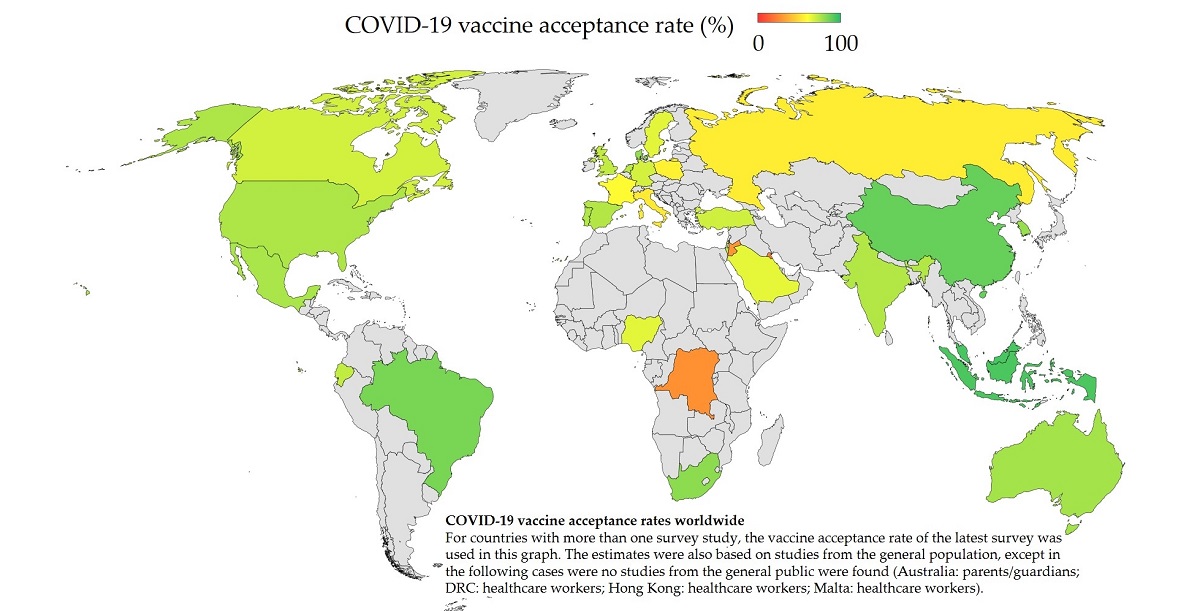Utility of vaccine campaigns to control coronavirus disease 2019 (COVID-19) is not merely dependent on vaccine efficacy and safety. Vaccine acceptance among the general public and the healthcare workers, appears to have a decisive role for successful control of the pandemic. The aim of this review was to provide an up-to-date assessment of COVID-19 vaccination acceptance rates worldwide. A systematic search of the peer-reviewed English survey literature indexed in PubMed was done on December 25, 2020. Results from 30 studies, met the inclusion criteria and formed the basis for final COVID-19 vaccine acceptance estimates. Results of an additional recent survey from Jordan and Kuwait was considered in this review as well. Survey studies on COVID-19 vaccine acceptance rates were found from 33 different countries. Among adults representing the general public, the highest COVID-19 vaccine acceptance rates were found in Ecuador (97.0%), Malaysia (94.3%), Indonesia (93.3%) and China (91.3%). On the other hand, the lowest COVID-19 vaccine acceptance rates were found in Kuwait (23.6%), Jordan (28.4%), Italy (53.7), Russia (54.9%), Poland (56.3%), US (56.9%), and France (58.9%). Only eight surveys among healthcare workers (doctors, nurses) were found, with vaccine acceptance rates ranging from 27.7% in the Democratic Republic of the Congo to 78.1% in Israel. In a majority of survey studies among the general public (62%), the acceptance of COVID-19 vaccination showed a level of ≥ 70%. Low rates of COVID-19 vaccine acceptance were reported in the Middle East, Russia, Africa and several European countries. This could represent a major problem in the global efforts that aim to control the current COVID-19 pandemic. More studies are recommended to address the scope of COVID-19 vaccine hesitancy. Such studies are particularly needed in the Middle East Africa, Eastern Europe, Central Asia, Middle and Latin America.

